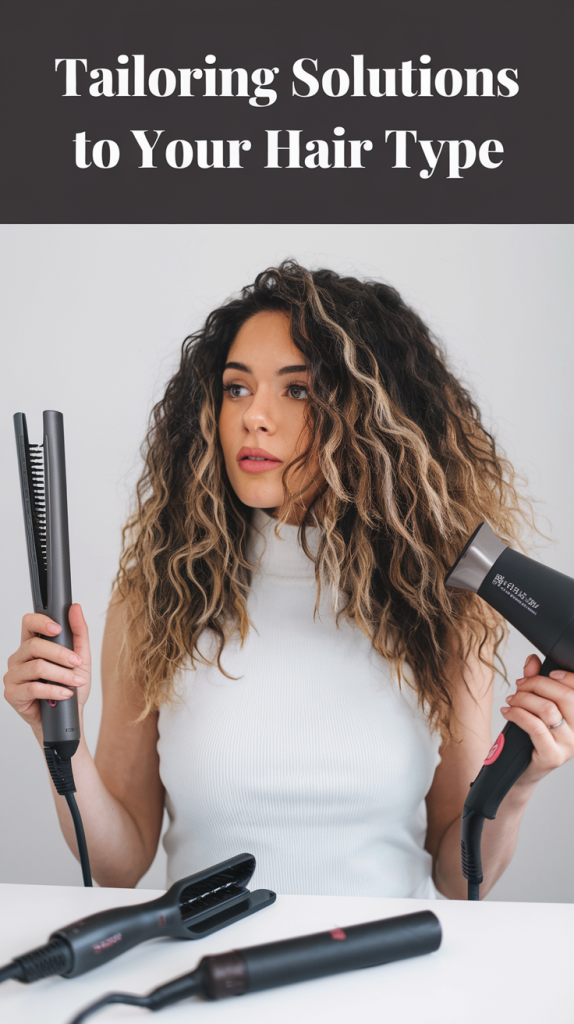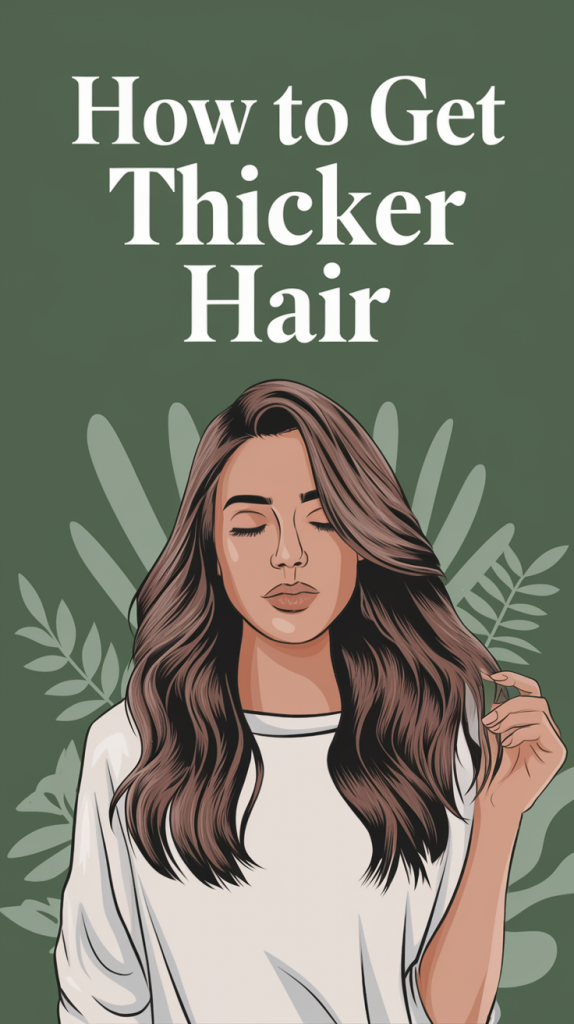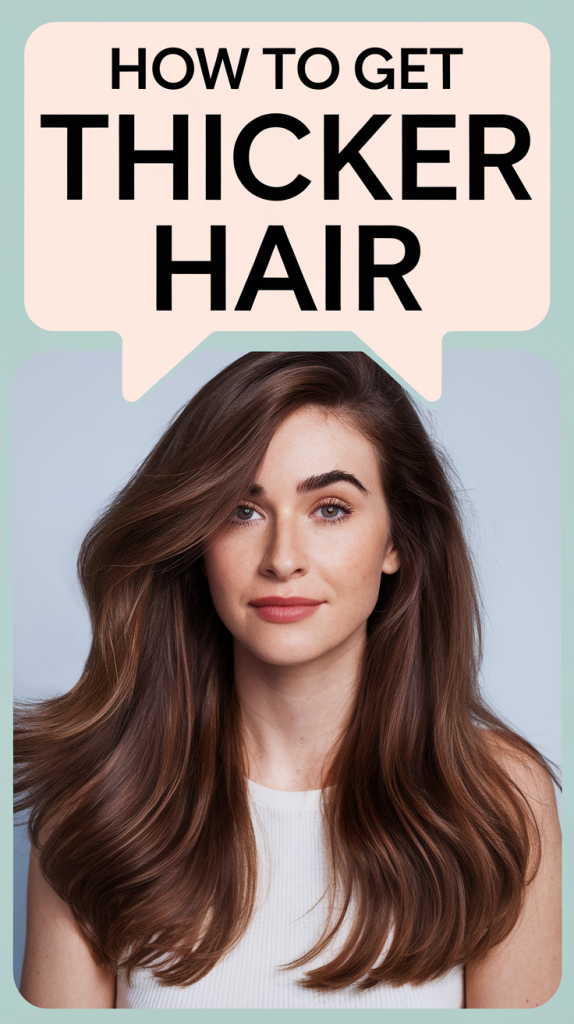Unlock Fuller, Thicker Hair: Comprehensive Guide to Achieving Voluminous Locks
Understanding Thinning Hair
Before diving into solutions, it’s essential to understand why hair thinning occurs. Common causes include genetics, hormonal changes, stress, poor nutrition, and improper hair care practices. Identifying the root cause is the first step toward effective treatment.

Common Causes of Thinning Hair
Understanding the underlying reasons for hair thinning can guide you in choosing the right approach to achieve thicker hair.
| Cause | Description |
|---|---|
| Genetics | Family history of hair thinning or baldness. |
| Hormonal Changes | Pregnancy, menopause, or thyroid issues can affect hair growth. |
| Stress | Physical or emotional stress can lead to temporary hair loss. |
| Poor Nutrition | Lack of essential nutrients like iron, protein, and vitamins. |
| Hair Care Practices | Excessive styling, heat, or chemical treatments can damage hair follicles. |
| Medical Conditions | Conditions like alopecia areata or scalp infections can cause hair loss. |
| Medications | Certain medications, including chemotherapy drugs, can lead to hair thinning. |
Natural Remedies to Thicken Hair
Sometimes, the simplest solutions are the most effective. Here are some natural remedies that can help promote thicker hair:
1. Balanced Diet
Eating a nutrient-rich diet is crucial for healthy hair growth. Incorporate the following into your meals:
- Proteins: Eggs, fish, and lean meats.
- Iron: Spinach, lentils, and red meat.
- Vitamins: Vitamins A, C, D, and E found in fruits and vegetables.
- Omega-3 Fatty Acids: Walnuts, flaxseeds, and fish.
Table 1: Essential Nutrients for Hair Growth
| Nutrient | Sources | Benefits |
|---|---|---|
| Protein | Eggs, fish, lean meats | Strengthens hair strands |
| Iron | Spinach, lentils, red meat | Prevents hair loss |
| Vitamin A | Carrots, sweet potatoes | Promotes scalp health |
| Vitamin C | Oranges, strawberries | Aids in collagen production |
| Omega-3 Fatty Acids | Walnuts, flaxseeds, salmon | Nourishes hair follicles |
2. Scalp Massage
Regular scalp massages can stimulate blood flow to the hair follicles, promoting growth. I personally found that using essential oils like rosemary or peppermint mixed with a carrier oil adds extra benefits and makes the massage more enjoyable.
3. Avoid Heat and Chemical Treatments
Excessive use of hair dryers, straighteners, and harsh chemicals can weaken hair strands. Opting for air-drying and limiting the use of heat styling tools can significantly improve hair health.
Effective Hair Care Practices
Adopting the right hair care routine can make a huge difference in achieving thicker hair. Here are some practices that I’ve found particularly beneficial:
1. Choose the Right Shampoo and Conditioner
Look for products that are sulfate-free and contain ingredients like biotin, keratin, and natural oils. These components help strengthen hair and add volume.
2. Regular Trimming
Trimming your hair every 6-8 weeks can prevent split ends and promote healthier growth. Personally, I noticed less breakage and more manageable hair after making this a routine.
3. Use a Wide-Tooth Comb
To reduce breakage, especially when your hair is wet, use a wide-tooth comb instead of a brush. This gentle approach helps maintain hair integrity.
4. Deep Conditioning Treatments
Incorporate deep conditioning treatments once a week to nourish your hair and maintain its thickness. I often use a homemade mask with avocado and honey for an extra moisture boost.
Professional Medical Treatments
While natural remedies and over-the-counter solutions can be effective, professional medical treatments may be necessary for some individuals. Consulting a dermatologist or a trichologist can provide personalized solutions.
1. Platelet-Rich Plasma (PRP) Therapy
PRP involves injecting your own platelets into the scalp to stimulate hair growth. This treatment has shown promising results in increasing hair density.
2. Laser Therapy
Low-level laser devices can help increase hair density by stimulating hair follicles. Regular use can lead to noticeable improvements in hair thickness.
3. Prescription Medications
In cases of androgenetic alopecia, doctors might prescribe medications like finasteride to inhibit DHT, a hormone linked to hair loss.
Topical Treatments and Supplements
Sometimes, natural remedies might not be enough, and you may need to consider supplements or topical treatments.
1. Minoxidil
Minoxidil is an FDA-approved topical treatment that can help stimulate hair growth and prevent further thinning. It’s available over-the-counter and has been effective for many individuals.
2. Biotin Supplements
Biotin, a B-vitamin, plays a vital role in hair health. Taking biotin supplements can strengthen hair and promote thickness.
3. Essential Oils
Essential oils like lavender, rosemary, and peppermint have been shown to promote hair growth when applied to the scalp regularly.
Lifestyle Changes for Thicker Hair
Incorporating certain lifestyle changes can enhance hair health and thickness.
1. Manage Stress
Engage in stress-reducing activities such as yoga, meditation, or regular exercise to prevent stress-induced hair loss.
2. Stay Hydrated
Drinking plenty of water keeps your hair hydrated and healthy from within.
3. Get Adequate Sleep
Quality sleep allows your body to repair and regenerate, which is essential for hair growth.
4. Avoid Smoking
Smoking can impair blood circulation, reducing the supply of nutrients to your hair follicles and leading to thinner hair.
Impact of Hormonal Balance
Hormones play a significant role in hair health. Imbalances in hormones such as thyroid hormones, estrogen, and androgens can lead to hair thinning:
1. Thyroid Disorders
Both hypothyroidism and hyperthyroidism can cause hair loss. Managing thyroid levels through medication can help restore hair health.
2. Androgens
Elevated levels of androgens like dihydrotestosterone (DHT) can shrink hair follicles, leading to thinner hair and hair loss.
3. Estrogen Levels
Fluctuations in estrogen levels, especially during menopause, can affect hair thickness and growth patterns.
Tailoring Solutions to Your Hair Type
Understanding your hair type is crucial in selecting the right treatments and care practices:
1. Straight Hair
Straight hair is often prone to appearing flat. Use lightweight volumizing products and avoid heavy conditioners to add body and movement.
2. Curly Hair
Curly hair can benefit from deep conditioning treatments and avoiding excessive heat to maintain volume without causing frizz.
3. Wavy Hair
Balancing moisture and volume is key for wavy hair. Use products that enhance natural waves without weighing them down.
4. Fine vs. Coarse Hair
Fine hair requires gentle handling and volumizing products, while coarse hair benefits from intensive conditioning to prevent breakage and promote thickness.

Hair Styling Tips to Enhance Volume
While working on internal and external treatments, you can use these styling techniques to make your hair appear thicker:
1. Layered Haircuts
Adding layers can create the illusion of volume and movement, making your hair look fuller.
2. Blow-Drying Techniques
Blow-drying your hair upside down can lift the roots and add volume. Using a round brush can also help create a fuller appearance.
3. Use of Volumizing Products
Mousse, volumizing sprays, and thickening serums can enhance the fullness of your hair. Apply these products to damp hair before styling.
4. Avoid Heavy Products
Heavy gels and waxes can weigh hair down, making it appear thinner. Opt for lightweight styling products instead.
5. Teasing
Gently teasing the hair at the roots can add instant volume. Be careful to avoid excessive teasing to prevent damage.
Table 2: Volumizing Products and Their Uses
| Product | Use | Best For |
|---|---|---|
| Mousse | Adds volume and body to hair | Fine to medium hair |
| Volumizing Spray | Enhances fullness and texture | All hair types |
| Thickening Serum | Strengthens and adds density | Thinning and brittle hair |
| Lightweight Gel | Provides hold without weighing hair down | Wavy and curly hair |
Debunking Common Myths About Thicker Hair
There are numerous myths surrounding hair growth and thickness. Let’s clarify some of them:
1. Myth: Cutting Hair Makes It Grow Faster
Fact: Trimming hair helps prevent split ends and breakage, but it doesn’t affect the rate of hair growth.
2. Myth: Brushing Hair 100 Times a Day Makes It Thicker
Fact: Excessive brushing can cause breakage and damage. Gentle brushing with a wide-tooth comb is recommended.
3. Myth: Dandruff Causes Hair Thinning
Fact: While dandruff itself doesn’t cause hair thinning, severe scalp irritation can potentially damage hair follicles.
4. Myth: Only Women Experience Hair Thinning
Fact: Men can also experience hair thinning and loss due to factors like genetics and hormonal changes.
5. Myth: Shampoos Alone Can Make Hair Thicker
Fact: While shampoos can improve hair health, achieving thicker hair usually requires a combination of treatments and lifestyle changes.

Scientific Backing for Hair Thickening Methods
Many of the methods mentioned are supported by scientific research. For instance:
- Minoxidil: Studies have shown that minoxidil can increase hair count and improve hair density.
- Biotin Supplements: Research indicates that biotin deficiency can lead to hair thinning, and supplementation can help in such cases.
- Platelet-Rich Plasma (PRP) Therapy: Clinical trials have demonstrated the efficacy of PRP in stimulating hair growth and increasing hair density.
- Essential Oils: Studies have found that essential oils like rosemary can be as effective as minoxidil in promoting hair growth.
Table 3: Scientific Studies Supporting Hair Thickening Methods
| Method | Study Findings |
|---|---|
| Minoxidil | Increased hair count and density in users over 6 months. |
| Biotin Supplements | Improved hair strength and reduced breakage in individuals with biotin deficiency. |
| PRP Therapy | Significant increase in hair density and thickness after multiple treatment sessions. |
| Essential Oils | Rosemary oil shown to be as effective as minoxidil in promoting hair growth over a 6-month period. |
User Testimonials: Real-Life Experiences with Thicker Hair Solutions
Many individuals have successfully increased their hair thickness by following the methods outlined above. Here are a few stories:
Sarah’s Journey to Thicker Hair
Sarah, a 28-year-old from New York, struggled with thinning hair for years. After incorporating a balanced diet rich in proteins and iron, and adding regular scalp massages with rosemary oil, she noticed significant improvement in her hair volume within six months.
John’s Success with Biotin Supplements
John, a 35-year-old from California, experienced hair thinning due to high-stress levels. After starting biotin supplements and reducing his use of heat styling tools, his hair became noticeably thicker and healthier over the next four months.
Emily’s Experience with PRP Therapy
Emily, a 40-year-old from Texas, sought professional help after trying various over-the-counter treatments without success. She underwent PRP therapy, which resulted in a substantial increase in hair density and thickness after a series of treatments.
Conclusion
Achieving thicker hair is a combination of proper nutrition, effective hair care practices, professional treatments, and lifestyle changes. By understanding the causes of hair thinning and implementing these strategies, you can work towards fuller, healthier locks. Remember, consistency is key, and it may take time to see noticeable results. Don’t hesitate to consult a healthcare professional if you experience significant hair loss or if over-the-counter solutions aren’t effective.
Ready to Transform Your Hair?
Start implementing these tips today and take the first step towards thicker, more vibrant hair. Share your journey or ask questions in the comments below—I’d love to hear about your progress and help you along the way!
